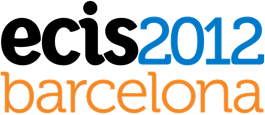Barcelona on June 10-13, 2012ESADE, Barcelona, Spain



the 20th European Conference on Information Systems



the 20th European Conference on Information Systems
Michel Avital Copenhagen Business School michel@avital.net
Lars Mathiassen Georgia State University lmathiassen@ceprin.org
The term "Alternative Genres" refers to new or unconventional form of thinking, doing, and communicating scholarship and practice. It relates to innovation with respect to epistemological perspectives [5, 9, 10], research methods [6, 7], semantic framing [1, 2], literary styles [4, 8, 11], and media of expression [3]. Overall, the application of alternative genres is a generative act of reframing that provides one with an opportunity to take a fresh look, to evoke new insights, and to gain deeper understanding of the subject matter. In most instances, alternative genres connote a pragmatic novelty, which refers to a new modality of inquiry that turned out to be a source inspiration and innovation.
Overall, the Alternative Genres Tack is about spanning or reframing the prevailing boundaries of IS scholarship and practice. In this track, we adopt a broad view that maintains alternative genres as any unconventional modality that expands or challenges the prevailing modus operandi of IS scholarship and practice. Accordingly, the application of alternative genres is expected to construct new desirable alternatives that have the potential to reshaping our social, physical, semiotic and technological environments through reconfiguration of technical artifacts and interaction with boundary processes and situated practices.
The conference theme, Information Systems and Global Welfare, calls for a broader and inclusive view of IS scholarship that aspires to foster environmental, economic and social value and to suggest ways of using information technology for providing leverage and fulfilling human needs. Articles can apply any consistent theoretical frame, methodology, or unit of analysis. Both theoretical essays and empirical studies are equally sought. We particularly encourage submissions that challenge or reframe our taken-for-granted assumptions, perceptions and practices. We envision a general track on alternative genres that is opened for a broad range of research and can consolidate all related work into a rich repertoire on modalities of inquiry in the context of information technology. Submission may cover but are not limited to the following: